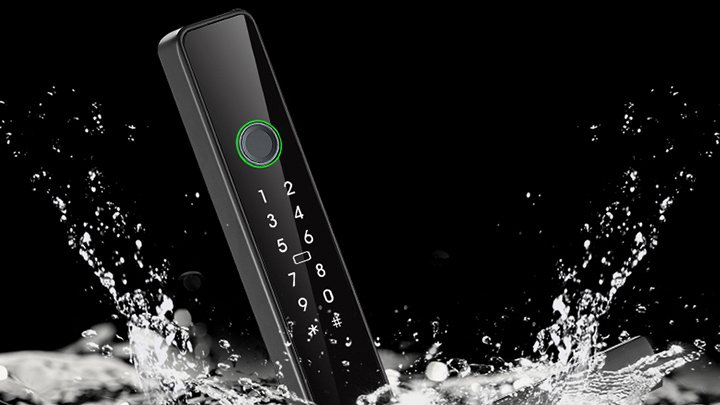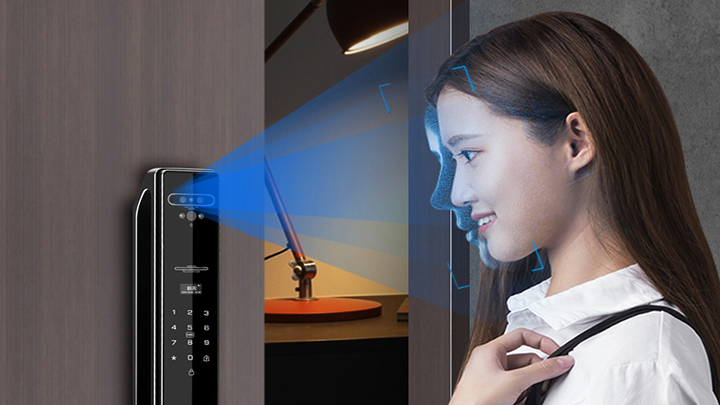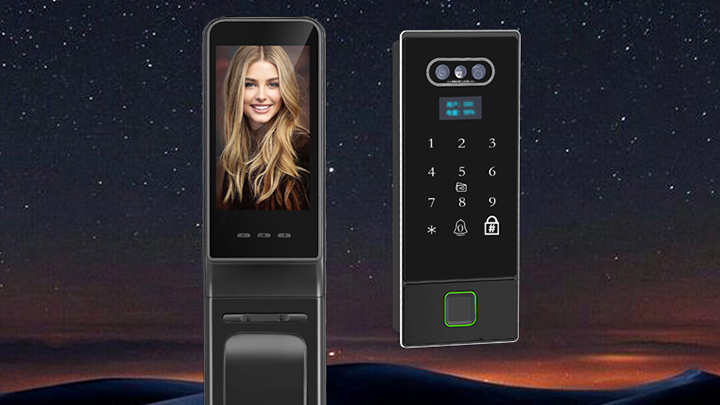How to Choose the Right Smart Lock: A Comprehensive Guide
Smart locks are becoming an essential part of home security, offering both convenience and enhanced safety. With features ranging from remote access to integration with smart home systems, choosing the right smart lock can feel overwhelming given the many options available. Here’s a guide to help you make an informed decision when selecting the best smart lock for your needs.
1. Determine Your Security Needs
Different homes and lifestyles require different levels of security. Before choosing a smart lock, consider:
- Location: For example, an apartment may need a simpler, less intrusive lock compared to a detached house.
- Frequency of Use: High-traffic homes may benefit from more durable locks with anti-tamper features, while lower-traffic homes may not need as many security layers.
- Level of Control: If you often have guests, like family or service providers, a smart lock with temporary or scheduled access features may be beneficial.
Understanding your security needs will help narrow down the specific types of smart locks that suit your lifestyle and environment.
2. Understand the Types of Smart Locks
There are various types of smart locks, each with its advantages:
- Keypad Locks: These locks allow you to set a unique code for entry. Keypad locks are reliable and user-friendly, making them suitable for households with multiple users.
- Bluetooth Locks: Bluetooth-enabled locks connect directly to your smartphone when in range, allowing keyless entry. They are a good option for those who don’t need remote access when away from home.
- Wi-Fi-Enabled Locks: Wi-Fi-enabled locks offer remote access, allowing you to control and monitor your lock from anywhere. They are perfect for frequent travelers or those wanting to manage access remotely.
- Biometric Locks: Biometric locks use fingerprint recognition for access. They provide an extra layer of security and are convenient for users who don’t want to rely on keys or codes.
Choosing the right type of smart lock will depend on the level of convenience and control you need over your home’s security.
3. Check Compatibility with Your Door
Not all smart locks are compatible with every door type. Before purchasing, make sure to:
- Measure Your Door: Take note of the thickness, backset, and existing deadbolt if you plan on installing a retrofit smart lock.
- Determine Installation Requirements: Some smart locks are designed to replace your entire deadbolt, while others can be retrofitted over existing locks. Make sure your door can accommodate the lock type you choose.
- Check Door Frame Stability: A smart lock is only as secure as the door and frame holding it. If your door frame is weak, consider reinforcing it to ensure the smart lock can function effectively.
Proper compatibility ensures easy installation and reliable performance.
4. Consider Battery Life and Power Options
Most smart locks run on batteries, but battery life varies between models. Here’s what to look for:
- Battery Life: Look for locks with long-lasting battery life (usually between 6-12 months) and low-battery alerts.
- Battery Type: Some smart locks use standard AA batteries, while others have built-in rechargeable batteries. Choose based on your preference for replacement convenience or recharging.
- Power Backup Options: Some smart locks offer backup power options, such as micro-USB ports or an external battery pack. This can be crucial in emergencies when the lock’s battery dies unexpectedly.
A lock with efficient battery life and backup options ensures consistent performance and reduces the chances of getting locked out.
5. Evaluate Security Features
Smart locks should enhance, not compromise, your security. When choosing a smart lock, look for these features:
- Auto-Locking: This feature automatically locks the door after a set period, ensuring your home is secure even if you forget to lock up.
- Tamper Alerts: Smart locks with tamper detection will alert you if someone tries to force the lock or tamper with the system.
- Encryption and Authentication: Ensure the smart lock has strong encryption protocols (like AES-128 or AES-256) to prevent hacking. Multifactor authentication adds another layer of security, requiring both a code and a smartphone or fingerprint.
- ANSI/BHMA Certification: If you want additional peace of mind, look for locks with an ANSI/BHMA certification of Grade 1 or 2, indicating they meet high-security standards.
Choosing a smart lock with robust security features provides added assurance against intrusions.
6. Choose the Right Access Control Features
One of the main benefits of smart locks is the variety of access options they offer. Choose a smart lock with the control features you need:
- Mobile App Access: Many smart locks come with apps that let you lock and unlock remotely, view access logs, and manage permissions.
- Voice Assistant Integration: If you have a smart home system, look for locks that work with Alexa, Google Assistant, or Apple HomeKit for hands-free control.
- Temporary and Scheduled Access: Some locks let you create temporary codes for guests or schedule access for certain times, ideal for Airbnbs or family members.
- Geofencing: Geofencing locks can automatically lock or unlock based on your phone’s proximity, offering hands-free convenience when you come and go.
Selecting access control features tailored to your household’s needs can make your smart lock a seamless part of daily life.
7. Consider Aesthetics and Design
Smart locks come in various designs and finishes, from sleek and modern to more traditional looks. When choosing a smart lock, consider:
- Finish: Look for finishes that match your door and existing hardware, such as brushed nickel, brass, or matte black.
- Style: Choose a style that complements your home’s decor, especially if the lock is visible on the front door.
- Compactness: Some smart locks have a larger profile that may not suit all doors. Make sure the size and design fit well with your door's appearance.
Choosing a smart lock that aligns with your aesthetic preferences can enhance your home’s curb appeal.
8. Review Brand Reliability and Warranty
Finally, smart locks are a significant investment, so choosing a reputable brand and understanding the warranty is essential:
- Brand Reputation: Research the brand and read reviews to ensure you’re purchasing from a reliable company known for quality and customer service.
- Warranty and Customer Support: Check if the lock comes with a warranty, typically ranging from one to three years. A solid warranty and good customer support can provide peace of mind and ensure help if issues arise.
Choosing a reliable brand with excellent support makes a difference in the long-term performance and reliability of your smart lock.
Conclusion
Selecting the right smart lock is about balancing convenience, security, and style. By considering your security needs, compatibility, battery life, security features, access control, aesthetics, and the brand’s reliability, you can make an informed choice. A well-chosen smart lock not only protects your home but also enhances your lifestyle, making everyday life easier and safer.




